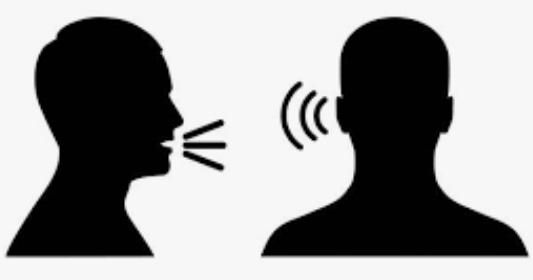A few years ago, I started speaking publicly about when and why I began to write.
By then, I had been a guest on dozens of podcasts and radio shows. When did I start writing. It was a wholly unromantic, unaffected answer; nobody gave me my grandfather’s treasured fountain pen nor did I land a place in the now-famous Mademoiselle guest editorship (won by over the years by Joan Didion, Sylvia Plath, Ali McGraw, Ann Beattie, Mona Simpson, Francine du Plessix Gray, and Meg Wolitzer). I did have my first publishing experience in the press room at my grandfather’s newspaper in lower Manhattan, when he dropped a piece of hot lead type into my palm, as he had my father forty years earlier. And when I was in grade school, my father gave me his childhood leather looseleaf binder, which still sits on my desk. But neither the press room nor the looseleaf made me a writer.
I read constantly, and everything I could get my hands on, and that certainly contributed. But what did it — what made me into a writer — was this: I was a stutterer.
As a child, it was completely impossible for me to finish a sentence, a thought, the oral expression of an idea. Apparently, I spoke very early but monosyllabically and quickly, as though I was racing to some sort of an invisible finish line. When I was urged to slow down and engage in conversation with my family and their friends, I did, and either because I was a dead bore or they had other, more interesting things to do, I was cut off mid-sentence, which resulted in my emitting a sort of verbal hiccup; I’d stop and start and then get flustered and sometimes cry, and then I’d get up and walk away into my bedroom, take out my notebook, and finish my thoughts. My notebook did not interrupt me; it did not get bored; it didn’t have better things to do.
My notebook did not interrupt me; it did not get bored; it didn’t have better things to do.
I don’t know whether or not this is common — childhood stuttering as a result of being chronically interrupted — but I do know this as anecdotal fact: people who grow up being interrupted as a rule rather than an exception somehow tend to attract the same sort of interrupters as adults. Anecdotal though it may be, it’s predictable, in the same way that people who grow up with NPDs (Narcissistic Personality Disordered people) or other emotional or physical abusers tend to attract them as adults for one reason: it’s familiar. It’s what they know. Even if it is abusive, it’s the language they speak and understand, and there is an odd, warped, terrifying comfort in that.
As someone who speaks in public — I teach, I lecture, I appear on a lot of podcasts and public radio shows and once did a TEDx talk in front of two thousand people without a teleprompter or notes — the threat of stuttering hangs over me like an albatross, even though it rarely happens anymore. I lecture at my own pace; I finish my own thoughts and sentences and I give my students and audiences time to ask questions without feeling rushed or pressured. This makes it that much more apparent to me when status interruptus happens, which it still does when I’m with certain people who either aren’t aware that they’re doing it, or are fully aware, and do it because it’s a control thing, or I’m not getting my point across fast enough for them, or they’re annoyed, or all of the above.
People who grow up being interrupted as a rule rather than an exception somehow tend to attract the same sort of interrupters as adults.
I used to have very close friends who, whenever we were together, not only regularly interrupted me mid-sentence as a matter of course; they often got up and walked away from me while I was in the middle of telling them a story, or trying to engage them in conversation. Or they’d change the subject and talk to each other as though I wasn’t even there. Or they’d talk to my wife instead, about something entirely different. For years I was sure that it was just me: either I didn’t have anything to say that was of interest to them, or whatever they were thinking about was just more important to them. Eventually, towards the end of our relationship, I let them know — wordlessly, of course — that their behavior was completely unacceptable. I’d known them for years and they knew that I was upset. But there was never an apology or a discussion. Instead, they did what most gaslighters do when it finally came up: they told me that I was just imagining it, or that I was being too sensitive, or they blamed it on me. For a while, I did think it was just me, until my wife — who is very reserved — confirmed that it was, in fact, happening; it was not my imagination. It took me a long time to realize that this kind of behavior stems from an inherent need to dominate — a person, a conversation — and that I was no longer interested in a relationship based on emotional domination.
Late into my fifties, it just isn’t my thing anymore; I had a Covid-related stroke in 2020 and I know that life is short. Those in my life who are most in love with conversation — the thoughtful back and forth between two people; not banter or verbal athletics, but the humanity of listening and responding — seem to be few and far between. And I miss the others for what I thought we had and maybe did have for a while. I don’t miss them, however, for who they are, and how they treated me at the end.
It took me a long time to realize that this kind of behavior stems from an inherent need to dominate — a person, a conversation — and that I was no longer interested in a relationship based on emotional domination.
Over time, I’ve come to understand and recognize the fact that I am one of those people who attracts chronic interrupters — even the ones who do it without realizing it, like my wife who, when the dog is barking and the cat is knocking stuff off the kitchen counter and the phone is ringing, finds it sometimes impossible to let me finish a thought. (And I get why; I live in the same house and it can often be a three-ring circus.) Not all of them are as aggressive as my old friends, and many of them do it because we simply live in a world that is built upon interruption and distraction: iPads ping, iPhones ring, Apple watches buzz, and the fact of multi-tasking — it used to be what we all aspired to — has been proven to be a liability for physical and mental health, memory, and clarity of thought. Who are most at risk? Children, I think, who are pulled from pillar to post, are overworked and over-scheduled, and whose supposed success depends upon their being able to do twenty-seven things at once, all of them perfectly. When my friends tell me this about their kids, I make one suggestion: give them a notebook and time to write in it. Let them know that no one will read it, and that they won’t ever be graded.
As I write this, I am at a month-long writer’s residency in Corsicana, Texas. Yesterday was my first full day here, and I took myself for a long walk down the main drag, popping in and out of local stores. I made friends with the fabulous woman selling the vintage Wranglers and the ancient Ovation Balladeer guitar, and I bought a first edition of The I Ching for $10. I popped in to another store specializing in British antiques, and fell into a long conversation with the owner about what it’s like to love old things that belonged to someone you’ll never meet. I wandered into another store and the proprietor looked suspiciously at the plastic bag carrying my new/old book and asked me, point blank, why I was there. And there it was: the hiccup, the inability to get the words out, the sentences rearranged as they attempted to escape my mouth into the air. Which only made things worse. It was an instantaneous, visceral memory for me—I felt like that child who had to justify her own existence, who was deemed irrelevant and expendable, the fact of her made pointless.
Status interruptus has resulted in my becoming a writer, and in the understanding that we now live in a world where focused listening to other people and engaging in conversation has become an anomaly. Every once in a while, like yesterday, I still stutter, but only very rarely. My response once I returned to my space felt so familiar: I took out my notebook, and wrote.






I also "attract chronic interrupters." It, and its ensuing issues, is one of the most difficult elements of almost every relationship in my life. I realized this about six years ago and began to try and make some shifts first with those closest to me. I said, "Hey, I recognize there is a pattern in our relationship where I mostly listen and you mostly talk, and then when and if you give me space to talk, I am interrupted by you, your phone, etc. before I can move through my complete thought. I recognize that both of us share some responsibility in this issue: I need to ask for what I need, and you need to consider whether that is something you can give in our relationship."
The conversations mostly went well, but the years that followed have been hard. Sometimes our friendship dwindled out because I tried to hold that boundary and they were unaccustomed to it and it felt strangely harsh coming from me. Sometimes our friendship actually grew deeper because they finally felt like they knew me (because they were finally listening to me!). And some friendships have sadly not changed at all. But I know deep within me that *I* have changed and that's been a really beautiful movement for me.
Also, just wanted to say, I like listening to your thoughts =)
Brilliant explanation of something i've never quite recognized about myself. I write in order to be listened to. Suddenly a flood of examples of being interrupted in mid-story and waiting, after the disruption had cleared, for the person I was with to say ... "you were saying ... " or "finish the story you were telling me ..." It may have happened occasionally but I don't remember it. Thanks for the insight.